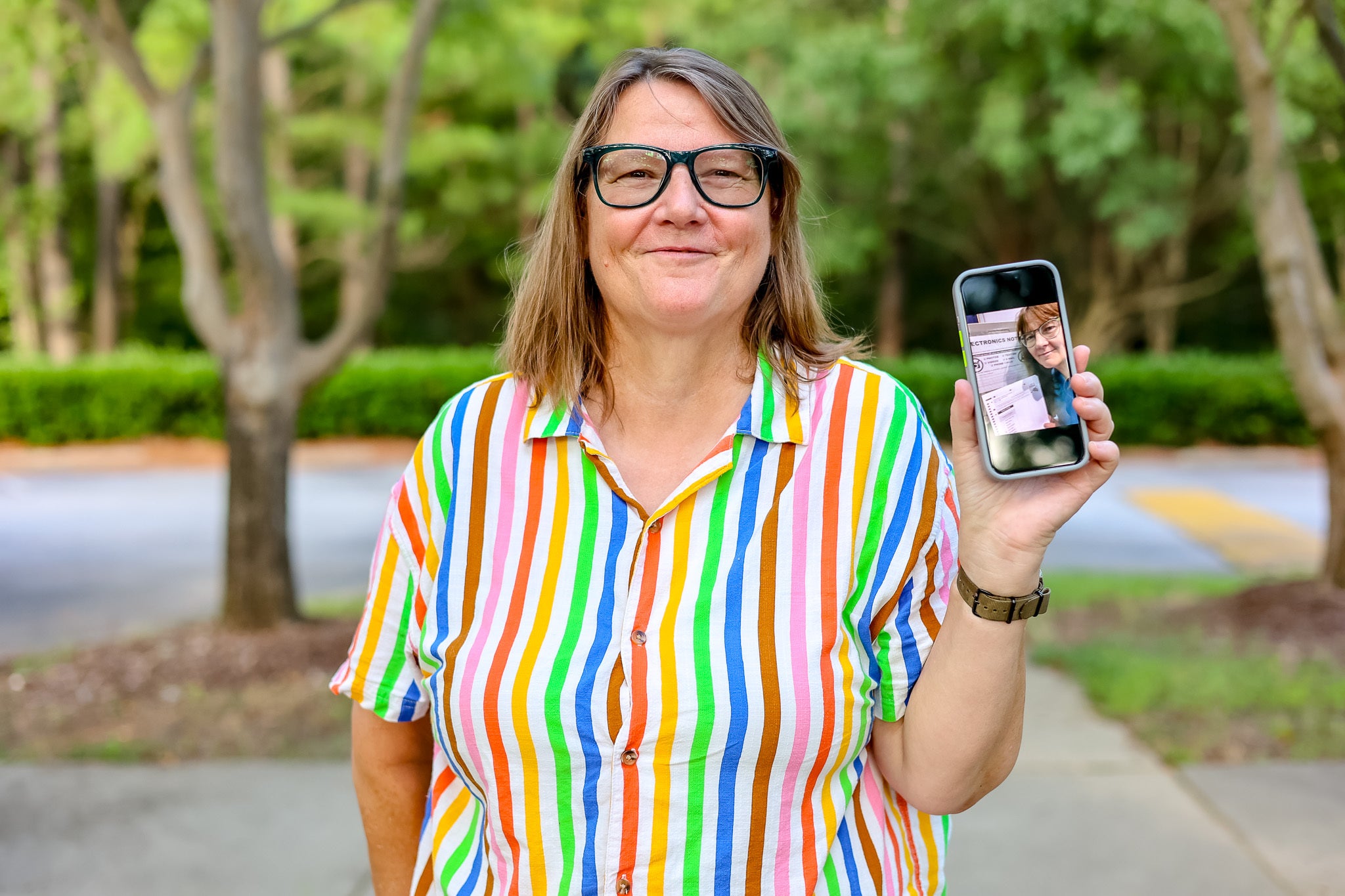She took a 'ballot selfie.' Now she's suing North Carolina elections board for laws that ban it
A woman is suing the North Carolina State Board of Elections after she says she received a letter from a board investigator asking her to remove a “ballot selfie” from a post on X

Your support helps us to tell the story
From reproductive rights to climate change to Big Tech, The Independent is on the ground when the story is developing. Whether it's investigating the financials of Elon Musk's pro-Trump PAC or producing our latest documentary, 'The A Word', which shines a light on the American women fighting for reproductive rights, we know how important it is to parse out the facts from the messaging.
At such a critical moment in US history, we need reporters on the ground. Your donation allows us to keep sending journalists to speak to both sides of the story.
The Independent is trusted by Americans across the entire political spectrum. And unlike many other quality news outlets, we choose not to lock Americans out of our reporting and analysis with paywalls. We believe quality journalism should be available to everyone, paid for by those who can afford it.
Your support makes all the difference.A woman is suing the North Carolina elections board over state laws that ban most photography in polling places after she took a selfie with her ballot in March.
The lawsuit was filed in the U.S. Eastern District Court of North Carolina by Susan Hogarth.
The lawsuit centers around a letter Hogarth said she received from the North Carolina State Board of Elections asking her to remove a post on X that included a selfie she took with her completed ballot during the March primary election.
She says the letter and the laws underpinning it are unconstitutional. She is suing the Board of Elections and the Wake County Board of Elections.
Hogarth, a Wake County resident, took a “ballot selfie” in her voting booth on March 5, the lawsuit said. She then posted her selfie on X, endorsing presidential and gubernatorial candidates for the Libertarian Party — something she does to “challenge the narrative that voters can only vote for major party candidates,” according to the lawsuit.
The suit says Hogarth received a letter two weeks later from a state Board of Elections investigator asking her to take down the post, or she could face a misdemeanor charge. Hogarth refused.
“It would have been easier to just take the post down," Hogarth said in a statement. “But in a free society, you should be able to show the world how you voted without fear of punishment.”
Photography and videography of voters in a polling place is mostly illegal in North Carolina unless permission is granted by a “chief judge of the precinct." Photographing completed ballots is also prohibited under state law.
One reason for outlawing ballot photos, the state elections board says, is to prevent them from being used "as proof of a vote for a candidate in a vote-buying scheme.”
The North Carolina State Board of Elections and the Wake County Board of Elections declined to comment on the litigation.
Most states have passed laws permitting ballot selfies and other photography, according to the National Conference of State Legislatures.
Some states, such as Arizona, ban photos from being taken within a certain radius of a polling place. Other states, such as Indiana, have seen ballot photography laws struck down by federal judges because they were found unconstitutional.
Now, Hogarth and the Foundation for Individual Rights and Expression are trying to do the same in North Carolina.
FIRE contends North Carolina's ballot photography laws violate the First Amendment. The complaint adds that the state would need to demonstrate real concerns of vote-buying schemes that outweigh the right to protected speech.
“Ballot selfie bans turn innocent Americans into criminals for nothing more than showing their excitement about how they voted, or even just showing that they voted,” said Jeff Zeman, an attorney at FIRE. “That’s core political speech protected by the First Amendment.”
The plaintiff's goal is to stop enforcement of the law before the November general election, in part because Hogarth is a Libertarian Party candidate running for a state legislative seat and she plans to take another selfie to promote herself, according to the lawsuit.